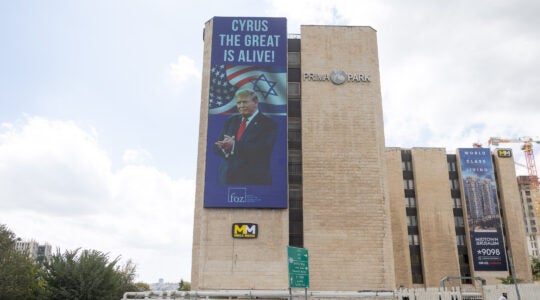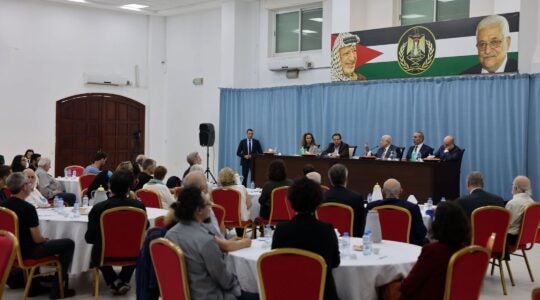JERUSALEM (JTA) — A tiny clay seal that likely certified the purity of ritual objects used in the Second Temple was discovered in an excavation near the Temple Mount.
The seal, which may have been used on the cruse of oil that lit the Temple’s menorah after the victory of the Maccabees over the Greeks, is the first "direct archaeological evidence of activity on the Temple Mount and the workings of the Temple during the Second Temple period,” according to the Israel Antiquities Authority, which announced the find on Sunday.
The seal, which is about two centimeters in diameter, or the size of a button, was discovered during a sieving process of the soil removed from the excavation. It is stamped with a two-line Aramaic inscription.
“The meaning of the inscription is “Pure for G-d,” according to the excavation directors on behalf of the Israel Antiquities Authority, archaeologists Eli Shukron of the IAA and Professor Ronny Reich of the University of Haifa. "It seems that the inscribed object was used to mark products or objects that were brought to the Temple, and it was imperative they be ritually pure. This stamped impression is probably the kind referred to in the Mishnah (Tractate Shekalim 5: 1-5) as a chotem, or seal."
The artifact was discovered among the layers of soil covering the foundations of the Western Wall, about 15 meters north of the southwestern corner of the Temple Mount, excavated beneath Robinson’s Arch.
Other artifacts dating to the Second Temple period were discovered, including some that date earlier to the time of the Hasmoneans, such as oil lamps, ceramic cooking pots and a fusiform juglet that may have contained oils and perfume, as well as coins of the Hasmonean kings, such as Alexander Jannaeus and John Hyrcanus.
JTA has documented Jewish history in real-time for over a century. Keep our journalism strong by joining us in supporting independent, award-winning reporting.





